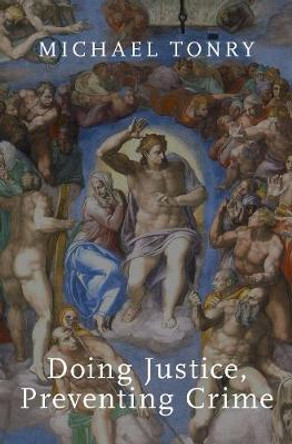Although criminal justice systems in developed Western countries are much alike in form, structure, and function, the American system is unique. While it is structurally similar to those of other Western countries, the punishments it imposes are often vastly harsher. No other Western country retains capital punishment or regularly employs life-without-parole, three-strikes, or lengthy mandatory minimum sentencing laws. As a result, the U.S. imprisonment rate of nearly 800 per 100,000 residents dwarfs rates elsewhere. The Oxford Handbook of Crime and Criminal Justice is an essential guide to the development and operation of the American criminal justice system. A leading scholar in the field and an experienced editor, Michael Tonry has brought together a team of first-rate scholars to provide an authoritative and comprehensive overview and introduction to this crucial institution. Expertly organized, the various sections of the Handbook explore the American criminal justice system from a variety of perspectives-including its purposes, functions, problems, and priorities-and present analyses of police and policing, juvenile justice, prosecution and sentencing, and community and institutional corrections, making it a complete and unrivaled portrait of how America approaches crime and criminal justice, and giving persuasive answers as to why and how it has developed to what it is today. Accessibly written for a wide audience, the Handbook serves as a definitive reference for scholars and a broad survey for students in criminology and criminal justice.
About the AuthorMichael Tonry is Sonosky Professor of Law and Public Policy at the University of Minnesota
Reviews"[The Handbook] provides an invaluable resource for beginning to understand criminology and criminal justice's history in order to better understand its present. It also illuminates avenues into the future-paths criminologists can take to avoid the pitfalls of the past and learn from its lessons Finally, the authors of the chapters almost always bring their discussion back to the present. This is important, as it connects the past to the present. In this way, criminology and criminal justice can proceed with a strong foundation of what has happened in the field, why it might have happened the way it did, and what we can do better moving forward."-- Contemporary Sociology
Book InformationISBN 9780199338283
Author Michael TonryFormat Paperback
Page Count 992
Imprint Oxford University Press IncPublisher Oxford University Press Inc
Weight(grams) 1565g
Dimensions(mm) 241mm * 173mm * 53mm








